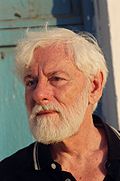Arab inhabitants were not accorded Israeli citizenship, but merely "permanent residence." This is a status that can be arbitrarily revoked at any moment -- and indeed was revoked in many cases, compelling the victims to move out of the city. For appearance's sake, Arabs were allowed to apply for Israel citizenship. The authorities knew, of course, that only a handful would apply, since doing so would mean recognition of the occupation. For Palestinians, this would be paramount to treason. (And the few that did apply were generally refused.)
The municipality was not broadened. In theory, Arabs are entitled to vote in municipal elections, but only a handful do so, for the same reasons. In practice, East Jerusalem remains occupied territory.
The mayor, Teddy Kollek, was elected two years before the annexation. One of his first actions after it was to demolish the entire Mugrabi Quarter next to the Western Wall, leaving a large empty square resembling a parking lot. The inhabitants, all of them poor people, were evicted within hours.
But Kollek was a genius in public relations. He ostensibly established friendly relations with the Arab notables, introduced them to foreign visitors and created a general impression of peace and contentment. Kollek built more new Israeli neighborhoods on Arab land than any other person in the country. Yet this master-settler collected almost all the world's peace prizes, except the Nobel Prize. East Jerusalem remained quiet.
Only few knew of a secret directive from Kollek, instructing all municipal authorities to see to it that the Arab population -- then 27% -- did not rise above that level.
KOLLEK WAS ably supported by Moshe Dayan, then the Defense Minister. Dayan believed in keeping the Palestinians quiet by giving them all possible benefits, except freedom.
A few days after the occupation of East Jerusalem, he removed the Israeli flag which had been planted by soldiers in front of the Dome of the Rock on the Temple Mount. Dayan also turned the de facto authority over the Mount over to the Muslim religious authorities.
Jews were allowed into the Temple compound only in small numbers and only as quiet visitors. They were forbidden to pray there, and forcibly removed if they moved their lips. They could, after all, pray to their heart's content at the adjoining Western Wall (which is a part of the compound's ancient outer wall).
The government was able to impose this decree because of a quaint religious fact: Orthodox Jews are forbidden by the rabbis to enter the Temple Mount altogether. According to a Biblical injunction, ordinary Jews are not allowed into the Holy of Holies, only the High Priest was allowed in. Since nobody today knows where exactly this place is located, pious Jews may not enter the entire compound.
AS a result, the first few years of the occupation were a happy time for East Jerusalem. Jews and Arabs mingled freely. It was fashionable for Jews to shop in the colorful Arab market and dine in the "oriental" restaurants. I myself often stayed in Arab hotels and made quite a number of Arab friends.
This atmosphere changed gradually. The government and the municipality spent a lot of money to gentrify West Jerusalem, but Arab neighborhoods in East Jerusalem were neglected, and turned into slums. The local infrastructure and services degenerated. Almost no building permits were issued to Arabs, in order to compel the younger generation to move outside the city borders. Then the "Separation" Wall was built, preventing those outside from entering the city, cutting them off from their schools and jobs. Yet In spite of everything, the Arab population grew and reached 40%.
Political oppression grew. Under the Oslo agreements, Jerusalemite Arabs were allowed to vote for the Palestinian Authority. But then they were prevented from doing so, their representatives were arrested and expelled from the city. All Palestinian institutions were forcibly closed down, including the famous Orient House, where the much admired and beloved leader of the Jerusalem Arabs, the late Faisal al-Husseini, had his office.
KOLLEK was succeeded by Ehud Olmert and an Orthodox mayor who didn't give a damn for East Jerusalem, except the Temple Mount.
And then an additional disaster occurred. Secular Israelis are leaving Jerusalem, which is rapidly becoming an Orthodox bastion. In desperation they decided to oust the Orthodox mayor and elect a secular businessman. Unfortunately, he is a rabid ultra-nationalist.
Nir Barkat behaves like the mayor of West Jerusalem and the military governor of East Jerusalem. He treats his Palestinian subjects like enemies, who may be tolerated if they obey quietly, and brutally suppressed if they do not. Together with the decade-old neglect of the Arab neighborhoods, the accelerated pace of building new Jewish neighborhoods, the excessive police brutality (openly encouraged by the mayor), they are producing an explosive situation.
The total cutting-off of Jerusalem from the West Bank, its natural hinterland, worsens the situation even more.
(Note: You can view every article as one long page if you sign up as an Advocate Member, or higher).





